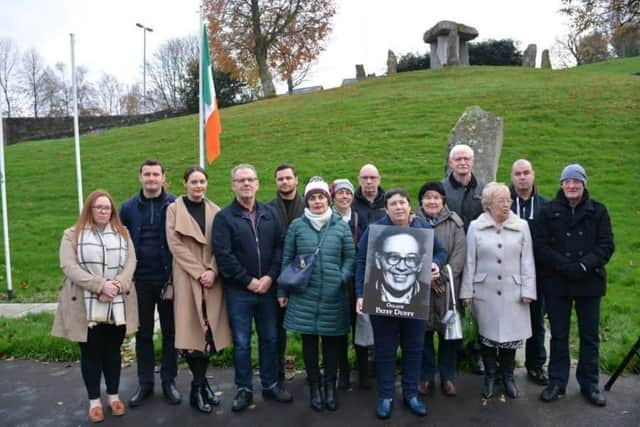Patsy Duffy killing 1978: UK govt's Legacy Bill branded ‘unjust’ at hearing


Stephen Toal KC, representing the family of Patrick Duffy from the Brandywell, who was shot dead in Maureen Avenue on November 24, 1978, was speaking at a preliminary hearing in the new inquest ordered by the then Attorney General John Larkin in 2019.
Counsel for the Ministry of Defence, Martin Wolfe KC, told the hearing that there were 'limited resources' and the MOD had to service 12 legacy inquests between now and April 2023.
Advertisement
Hide AdAdvertisement
Hide AdHe said there were two employees who handled sensitive materials that were to be disclosed and as such 'it was not feasible to progress sensitive disclosure' as well as deal with this hearing. As such, the process of examining sensitive information in this case would not be in a position to start until April 2023.
The Coroner, Judge Fiona Bagnall asked how long that process would take and was told 'months.'
Mr Wolfe said one problem was that much of the material was on microfiche and was not catalogued.
Mr Toal, representing the Duffy family, said they had only just received the letter outlining this problem and it felt 'a lot like an ambush which is quite ironic considering the way the deceased died.'
The barrister said that the MOD had 60,000 civilian employees and a budget of £40 billion, yet they only have two employees dealing with this material.
Advertisement
Hide AdAdvertisement
Hide AdHe said that some of the Duffy family were already deceased and added they were' extremely concerned the inquest will never go ahead and if it does no one will be alive to see it.'
The barrister said that this would be' wrong ' and the court should not permit it.
Ian Skelt, KC for the Coroner said there was a possibility that the inquest would not happen due to the government imposed ‘guillotine ' on legacy issues.
However, he suggested to the Coroner that a 'modular approach' could be adopted which would mean starting the inquest with some evidence then adjourning it. He suggested that the interested parties should make short representations on this idea.
The hearing was also told that the MOD had identified one soldier known as Soldier A and are currently engaging with him to try and identify other soldiers.
The next preliminary hearing will take place on January 12.